Kosovo: the origins and ideology of the struggle of Albanian nationalists
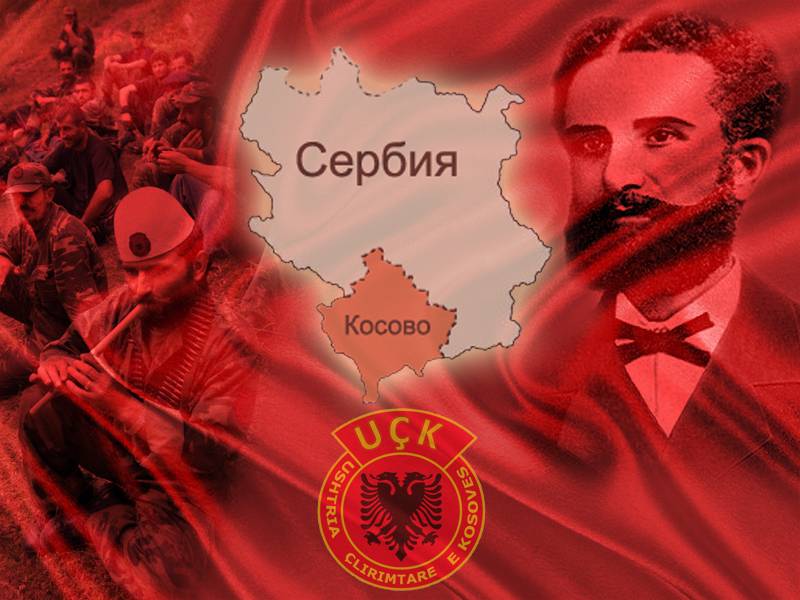
17 February 2008 was proclaimed the independence of the Republic of Kosovo - the unrecognized state on the map of Europe. The Kosovo conflict is one of the largest and most significant in modern stories Balkan Peninsula. Its roots go back to the great tragedy of the peoples of the Balkans - the enslavement of the peninsula by the Ottoman Empire. It was the Ottoman conquest of the Balkans that created the historical prerequisites for those tragic events that subsequently occurred in the history of the Kosovo region. In 1454, the territory of Kosovo was finally conquered by the Ottoman Turks. At the end of the 17th century, Kosovo was liberated for a short time by Austrian troops, but already in 1690, the Ottomans were able to take revenge and drive the Austrians out of Serbia. Together with the Austrians, several thousand Serbian families left, fearing reprisals from the Ottomans.
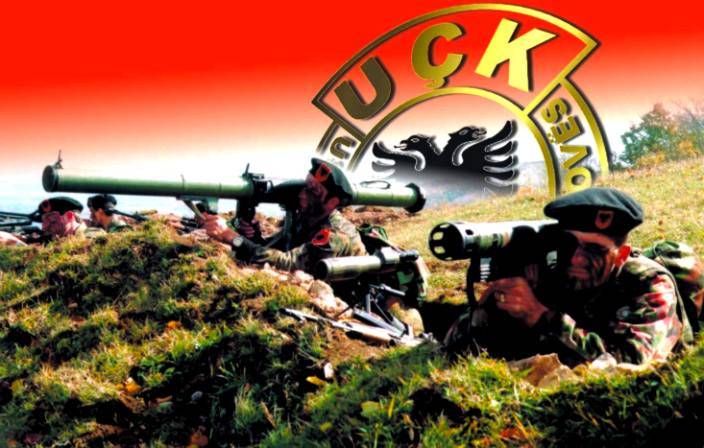
The Ottoman Empire contributed to the active settlement of Kosovo’s lands by Albanians, who, unlike the Slavs, managed to integrate quite effectively into the socio-political structure of the Ottoman state. The mass Islamization of the Albanians contributed to increasing their loyalty to the sultan; in turn, the Ottomans viewed the Albanians as a counterweight to the Slavic population of the Balkans, therefore, the resettlement of the Albanians to the liberated in Kosovo as a result of the outflow of the Serbian population in Istanbul was perceived positively. By the middle of the XIX century, the share of Albanians exceeded 50% of the population of the region. This was facilitated by the formation of an independent Serbian principality (then kingdom), into which many Kosovo Serbs also rushed. In turn, the province of Kosovo, considered the historical symbol of the Serbs, gradually became Albanian and became the most important center of the Albanian national movement.
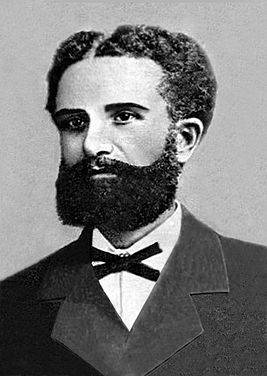 As often happens, on the periphery, national identity is manifested especially clearly, therefore, Kosovo Albanians (Kosovars) were significantly superior to their fellow tribesmen from Albania proper in nationalism and radicalism. It was in Kosovo that the Albanian national revival began, connected with the activities of the Prizren League founded in 1878, the ideologist of which was Abdul Frasheri (1839-1892) - one of the founding fathers of Albanian nationalism. In November, 1878, the league demanded autonomy from Istanbul for the Albanian regions of the empire, and having been refused, it actually seized power in Kosovo and Metohija for three years. Historians point out that at the end of the 19th century, mass manifestations of Serb discrimination by Albanians on the territory of Kosovo and Metohija began.
As often happens, on the periphery, national identity is manifested especially clearly, therefore, Kosovo Albanians (Kosovars) were significantly superior to their fellow tribesmen from Albania proper in nationalism and radicalism. It was in Kosovo that the Albanian national revival began, connected with the activities of the Prizren League founded in 1878, the ideologist of which was Abdul Frasheri (1839-1892) - one of the founding fathers of Albanian nationalism. In November, 1878, the league demanded autonomy from Istanbul for the Albanian regions of the empire, and having been refused, it actually seized power in Kosovo and Metohija for three years. Historians point out that at the end of the 19th century, mass manifestations of Serb discrimination by Albanians on the territory of Kosovo and Metohija began. The reunification of Kosovo and Metohija with Albania became the “sore subject” of Albanian nationalists for the entire twentieth century. These sentiments intensified especially after the proclamation of independence of Albania in 1912. The leaders of the Albanian nationalists considered Kosovo and Metohija as a historical part of “Great Albania” - vast lands inhabited by Albanians and in need of unification into a single state. However, the only historical period when the idea-fix of Albanian nationalists was practically realized was the years of the Second World War. 12 August 1941 The king of Italy Victor Emmanuel III incorporated the lands of Metohija, Central Kosovo, Western Macedonia and Eastern Montenegro into Albania.
The years of the Second World War were accompanied by a wave of violence by Albanian collaborators against the Serbian, as well as the Jewish and Gypsy population of Kosovo and Metohija. The Albanian fascists used the Italian and then German occupation as a convenient cover for carrying out the policy of genocide of the non-Albanian population in Kosovo and Metohija. At least 10 thousand Serbs were victims of the Albanian fascists. As a result of the massacres and the outflow of Serb survivors, the settlement of Kosovo and Metohija continued with Albanians arriving from Albania. All of this fit into the plans of the Italian, and then the German, leadership for the Slavonicization of the Balkan Peninsula.
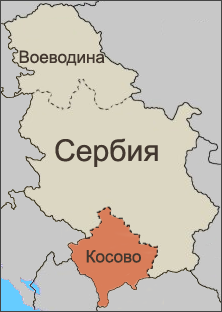
It is noteworthy that the Albanian communists, who fought a desperate partisan struggle against the Italian and then the German occupiers, also shared the idea of creating a “Great Albania”. True, they understood it as a necessity for the political unification of the Albanians of the Balkan Peninsula into a single socialist republic. Disputes about the fate of Kosovo and Metohija became one of the main reasons for the contradictions between the Yugoslav and Albanian communists. In 1944, the territory of Kosovo and Metohija was liberated by units of the People’s Liberation Army of Yugoslavia. At that time, Josip Broz Tito expected that Albania would sooner or later become part of the Yugoslav state. Tito’s conviction was not just erroneous, but entailed further criminal miscalculations in the country's domestic policy. In an effort to demonstrate his friendliness to the Albanians, Tito gave autonomy to Kosovo and Metohija and in every possible way contributed to the migration of Albanian people to the region. At the same time, he created obstacles for the return to Kosovo of the Serbian population who had fled from the province during the Second World War.
But the Albanians did not appreciate Tito's efforts. In Kosovo and Metohija, nationalist and Serbophobic sentiments remained. By the middle of 1960's. Albanians constituted the overwhelming majority of the region’s population, which further strengthened separatist sentiments among them. In 1968, a wave of riots broke out in Kosovo, organized by Albanian nationalists. The socialist government of Yugoslavia made concessions. The new Constitution of the SFRY 1974 granted the status of an official in the territory of Kosovo to the Albanian language, Albanian schools were opened, teaching in higher educational institutions became possible in the Albanian language. However, these measures not only did not contribute to the reduction of separatist sentiments, but on the contrary caused further politicization of the Albanians and their desire to gain independence from Yugoslavia and reunite with Albania.
In 1981, a new wave of unrest took place in Kosovo, connected with the promotion by the Albanian nationalists of the slogan of turning Kosovo into a full-fledged union republic within Yugoslavia. Demonstrations of Albanian youth ended in large-scale clashes with the Yugoslav army. At the same time, ethnic clashes began in the province. The situation in Kosovo contributed to the intensification of the Serbian nationalists, who, in turn, raised the slogan of dealbanization of the region and the return of their historic territory to the Serbs.
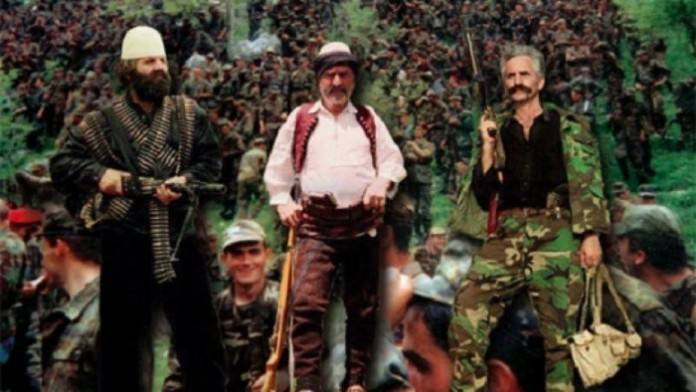
The end of 1980-x was characterized by the beginning of the processes of disintegration of the allied Yugoslav statehood. Under these conditions, certain changes have occurred in the life of Kosovo. In particular, the Constitution of Serbia was adopted in 1989, which reduced the rights of the Albanian population of the region. Slobodan Milosevic, who headed Yugoslavia, decided to neutralize the separatist sentiments in the province. To this end, the use of the Albanian language in official institutions was reduced, Albanians began to be "squeezed out" from responsible posts in the province, primarily from the security forces and the administrative apparatus. At the same time, in the Albanian environment, nationalist sentiment was given a boost, as the Kosovars saw an example of the Croats and Bosnian Muslims who had left Yugoslavia. Thus, by the beginning of the 1990s in Kosovo, all the prerequisites had developed for the further aggravation of the political situation. Armed groups have emerged in the province, focusing on the fight against the Yugoslav government by force. The conglomerate of these groups was called the “Kosovo Liberation Army” (KLA, or Albanian abbreviation - UCHK).
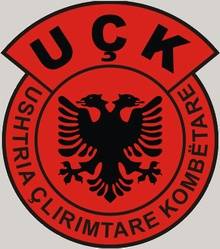 It is noteworthy that, although the UCH was one of the most well-known military-political organizations of the world in the 1990-2000-s, the exact time of its occurrence is still unknown. We only know that it was about 1994-1995 years. The composition of the UCHK included armed Kosovo Albanian groups that adhered to different ideological orientations, but united by a common goal - the separation of Kosovo and Metohija from Yugoslavia. There are several components of the Albanian resistance in Kosovo.
It is noteworthy that, although the UCH was one of the most well-known military-political organizations of the world in the 1990-2000-s, the exact time of its occurrence is still unknown. We only know that it was about 1994-1995 years. The composition of the UCHK included armed Kosovo Albanian groups that adhered to different ideological orientations, but united by a common goal - the separation of Kosovo and Metohija from Yugoslavia. There are several components of the Albanian resistance in Kosovo. First, they were neo-fascists and ultranationalists - followers of the ideas of the old Albanian organization “Bally Kombetar”, which advocated the construction of the Great Albania. Many Albanian nationalists did not hide their sympathy for the SS Skanderbeg division, which was manifested in the black uniform of the UCHK militants and in a characteristic greeting. Secondly, a number of UCHK detachments were formed by the Khojaists — Stalinists, followers of the Marxist-Leninist ideology as interpreted by Albanian leader Enver Hoxha. The views of Hoxha are still widely used in the Albanian environment, which is understandable - it was under Khoja that Albania finally became similar to the state. The communists managed to unite the opposing clans and create a real statehood in Albania, which could not be compared with the governments of the war or the royal regime of Ahmet Zog in the 1920-1930-s.
The Kosovo Liberation Army from the very beginning had external relations in three main areas. First, it was Western intelligence services, primarily intelligence services of the United States and Great Britain. The West was interested in the further collapse of Yugoslavia and the weakening of Serbian, and a priori, Russian influence in the Balkans. Albanian resistance in Kosovo was the best fit for this scheme. UCH troops were trained by American and British instructors, and weapons and uniforms were sent to Kosovo through the same channels.
Secondly, emissaries of international Islamic fundamentalist religious organizations established ties with the UCHK. Thus, the Albanians were assisted by the notorious Fethullah Gülen. As part of the Kosovo Liberation Army, there were detachments of militants from the countries of the Near and Middle East, North Africa, Bosnia and Herzegovina, which were practically not controlled by the central command. For example, the media have repeatedly reported that militants from Afghanistan, Algeria, Bosnia, Egypt, Iran, Saudi Arabia and Sudan are fighting in Kosovo.
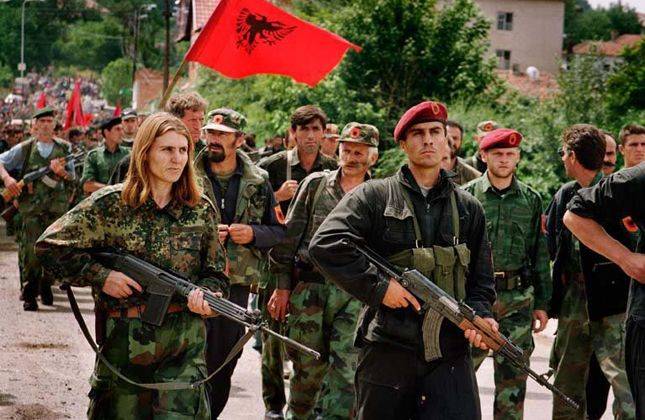
Thirdly, the Albanian mafia has become a very important component of ensuring and financing the organization and its activity throughout Europe. The history of the emergence and activities of the Albanian mafia requires a separate study, it is worth only to note that the clan structure of the Albanian society contributed to the emergence of mafia associations, which already in the 1980-s. controlled a significant part of the supply of heroin from Turkey to Europe. Criminal syndicates especially increased after the war began in Yugoslavia. It was the Albanian criminal gangs who set about bringing drug trafficking through Yugoslavia to Europe. This contributed to the growing influence of the Albanian mafia in European countries. In addition, the influx of Albanian refugees and labor migrants to European countries also became one of the factors strengthening the position of the Albanian mafia.
Already in 1999, even American experts recognized that the majority of UCHK’s financial resources come from Albanian organized crime activities. In fact, most of its supply UCHK carried out at the expense of "dirty" money received from the mafia that sells drugs. Terrible stories about the involvement of the Albanian mafia in the trade in human organs have gained worldwide fame. The victims of trafficking in human organs were mostly Serbs who went missing. This question in 2008 was raised by the former prosecutor of the Hague Tribunal, Carl del Ponte, but he remained without proper reaction from the world community. Not only the ordinary field commanders and the head of the army medical service Sharip Muju were suspected of involvement in organ trafficking, but also the high command of the UCHK, including Hashim Thaci himself, who still holds the presidency of the unrecognized Republic of Kosovo.
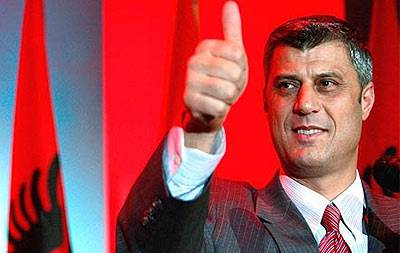
The activities of the Kosovo Liberation Army are widely described in modern publications. Despite the fact that UPC militants carried out ethnic cleansing of the Serbian and Gypsy population in the territory of the region, committed numerous crimes against civilians, the leadership of the Army did not incur any responsibility - the contrast is stark compared to the persecution of Serbian political and military figures for whom it is controlled by the West the international court made no concessions. Hashim Tachi, one of the most famous and tough field commanders of the UCHK, whose connections with the underworld have been repeatedly reported by Western media, from 2008 to 2014. served as prime minister of Kosovo.
17 February 2008 was proclaimed the independence of the Republic of Kosovo. However, up to the present, this entity remains unrecognized by many countries of the world, including the Russian Federation. Almost a decade of existence as a virtually independent territory demonstrated that even with the financial and organizational support of the West, the nationalist forces of the region were unable to create social and economic stability on its territory. A mass outflow of the population continues from Kosovo, only now it is no longer Serbs, but Albanians themselves - and this is understandable, given the socio-economic situation in the province. Creating is not destroying, but for some reason the nationalists dreaming of “Great Albania” did not take this into account.
Information